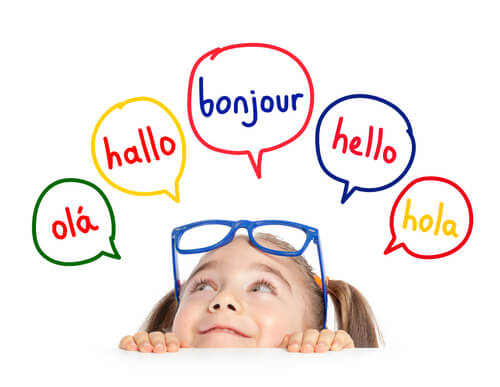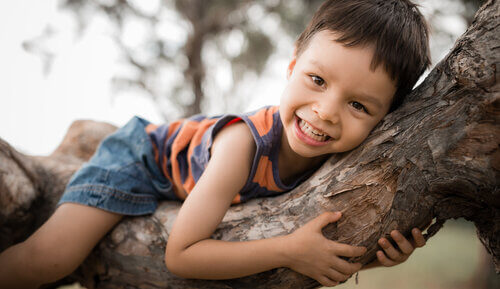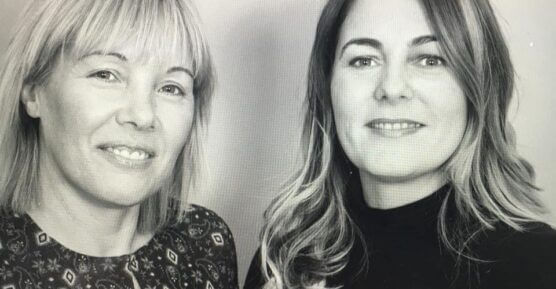
Table of contents
Bilingual nurseries offer children the chance to learn a second language from a young age.
Bilingual (and multilingual) nurseries are most commonly found in London, but they do appear elsewhere in the UK.
Languages spoken in existing bilingual nurseries include:
- French
- German
- Italian
- Spanish
- Russian
- Greek
- Mandarin
- Welsh (Welsh is already part of the Curriculum for Wales) offer more intense or immersive Welsh language learning. These Welsh-speaking nurseries are called meithrinfa.
- Cornish
- Gaelic
Learning a second language is a fantastic way to exercise the brain and improve cognitive function at any age. However, learning one is known to be much easier in the early years.
How early should children start to learn a second language?
Babies are constantly learning new things about the world around them. It’s never too early for them to start learning a second language.
Katy Shakerifar is the owner of West Ealing Montessori Nursery (Bilingual-French). She states: “The mind of a child, when they are born, can pronounce any sound. The reason it becomes mother tongue is because the pronunciations of their mother becomes more prominent and they lose their ability to pronounce other sounds. Bilingual children do not lose this ability so can speak two languages.
“Bilingual children pick up first on the rhythm and then the words become differentiable. At the beginning they know what the whole phrase will mean but not understand the individual words.”
Phillipe Fraser is director of Les Petites Etoiles nurseries in London. He says: “Children of this age are used to adults using words and sentences they do not understand. This is, after all, how they learn their own mother tongue. So introducing or supporting a second language is much easier at this age.
“The brain has maximum mental plasticity in the young. There is a real window of opportunity in this age group. The old adage of “use it or lose it” does apply. Over time children’s minds progressively become less suited to new language learning. They lose the flexibility that they had when they were young.”
Dalia Ros is owner of Cherry Tree Bilingual Nursery and Pre-school. She believes: “We shouldn’t start teaching children French and Spanish at the age of 11. We should be exposing them to these languages at six weeks old.”
What other benefits are there of learning a second language in early years?
Being able to speak a second language opens up many doors to children. From being able to travel easily in to making new friends who speak it to being able to use it in their future careers. Some even take an extra GCSE in their second language, which is great for university applications.
As well as this, there are benefits to their overall cognition, particularly their ability to problem-solve and multi-task, and their social skills.
Les Petites Etoiles’ Mr Fraser explains: “As well as this clear age advantage, the benefits flow in the other direction too. Studies show that being bilingual is protective for the mind in terms of dementia and also benefits other subjects such as mathematics. The reason for this is that bilingualism benefits the executive functions of the mind and enhances long-term mathematical understanding and attainment.
“Of course, there are many cultural advantages to speaking more than one language; seeing the world through a second culture which is only truly possible through speaking a different language helps broaden our perspectives and opportunities. I truly believe being bilingual helps build bridges between cultures and helps broaden a child’s world and possibilities.”
How do bilingual nurseries organise language?
Bilingual nurseries follow their country’s national curriculum just as any other nursery does. Many also follow early years teaching techniques such as the Montessori method. At Les Petites Etoiles, where two of the three bilingual nurseries are also Montessori nurseries, the curriculum is designed to follow both England’s EYFS and France’s national curriculum.
- Learning a second language is built into this in a holistic way, much like bilingual households.
- Some nurseries are wholly immersive, so use only the second language.
- Others employ native speakers of both languages.
- Both methods help children to differentiate between English and their second language according to who is speaking to them.
Mr Fraser, explains: “Consistency is really important for any bilingual programme to be effective. It is the same for parents at home. If a child has two parents who speak different languages, then for the child to grow up bilingual, it is important for each parent to stick to their mother tongue.
“It is the same at our group of nurseries: our French teachers speak only in French to the children, our English teachers only speak in English. We also offer an introduction to Mandarin, and so as you would expect, the Mandarin teachers only speak to the children in Mandarin.”
According to Ms Shakerifar of West Ealing Montessori Nursery, this works because children link a language to the person who speaks it to them. She said: “A child’s mind is like a chest of drawers and when they look at a person they open the drawer for French or English and can speak to them in the language that comes out of their mouths.
“Children have the capability to learn four and five languages, only sometimes the problem is that it takes longer to be able to do so because in their minds they need to differentiate between the languages depending on who they speak to.”
Children can then learn to understand and use both their first and second languages in daily life at the nursery.
Mr Fraser adds: “When planning and implementing the routine for the day, it is important that we take into account the various activities we offer, to ensure the children can do all the activities in both French and English. For example, the children benefit from being exposed to creative activities in both languages.This helps them learn the related vocabulary such as colours in both languages. The same goes for story time and mathematics.”
At Little Linguists School, Wandsworth, language learning even extends to families. Children are given homework and the nursery holds French workshops for families and nannies. This supports them to continue with their child’s learning at home and long after they have left early years.


